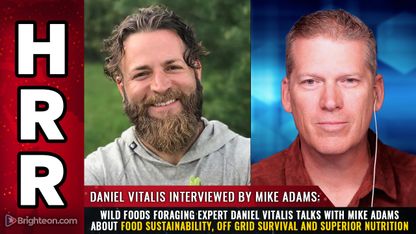
Researchers who were led by Kaveh Ashrafi, Mihir Vohra, and their colleagues at the University of California at San Francisco showed that there was a possibility that making changes to one's daily diet can actually improve learning abilities.
This is due to the depletion of a single amino acid metabolite, a brain chemical called kynurenic acid.
In carrying out the research study, the researchers were able to glean information about the subject matter by conducting an experiment to deprive the nematode worm Caenorhabditis elegans of calories over long periods of time.
They trained the roundworms to attribute the scent of a smelly chemical called butanone with a food reward. After the said training, the worms traveled from the center of a circle to one side laced with butanone, instead of to the opposite side that smelled of alcohol.
Dietary restriction showed an increased ability in the worms to form associations (a type of learning) with butanone. (Related: Music trains the nervous system and improves learning ability.)
The neurons responsible for learning are activated by the neurotransmitter glutamate, which is inhibited by kynurenic acid, a metabolic product of the amino acid L-tryptophan. Dietray restriction boosts learning abilities by decreasing kynurenic acid levels.
Also, other molecular methods that are involved in diet-induced longevity, which includes insulin signaling, increased learning skills by changing the genes that regulate kynurenic acid production.
The model proposed by the authors showed that caloric reduction also decreased kynurenic acid production, inhibiting the metabolite to exert any undue influence over glutamate signaling, which in turn builds up neuronal activity.
“The kyurenic acid pathway and the inhibitory effects of the compound are also found in mammals. But it remains to be determined whether kynurenic acid influences learning in mammals as directly as it does in worms, and whether manipulation of the pathway might offer new opportunities for therapeutic intervention in human disorders,” Ashrafi said.
However, Ashrafi does cite a study that was done in 2008 that showed that 60-year-old adults or older who cut calorie intake by 30 percent became better at learning lists of words.
University of Sydney professor Devin Wahl said the finding made sense, noting, “Your brain needs to be functioning at a high level when you're on the hunt for food because you're trying to beat competitors. Once you've had a big meal, you just want to sleep.”
There have been earlier studies regarding calorie restriction and what it does to flies, mice, and monkeys; apparently, dieting can extend their lives for years. This means that the loss of kynurenic acid in some mammals were shown to improve longevity. However, it does not hold true for the worms that were denied kynurenic activity as they did not live longer.
Read up on more stories such as this one at Discoveries.news.
Sources include:
Please contact us for more information.























